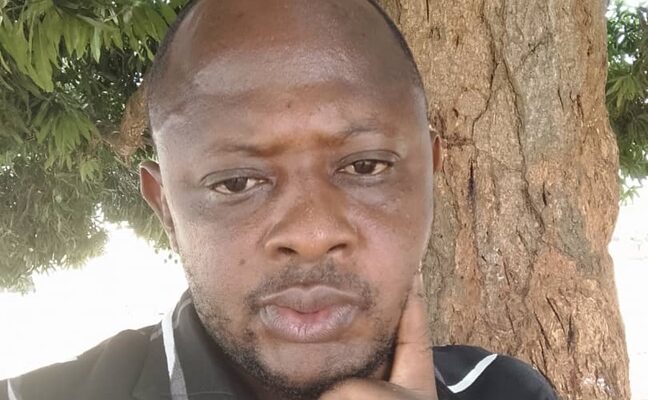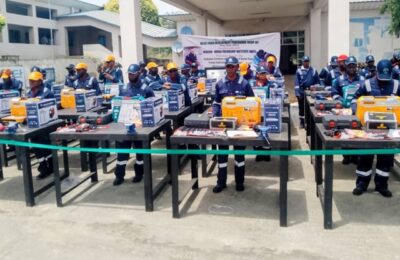In the silence of unspoken hurt and the noise of unending crises, Nigeria groans — not just from economic miscalculations or bad governance, but from a spiritual erosion. “All for one, one for all” — that noble creed from Alexandre Dumas’ The Three Musketeers — once symbolized brotherhood, loyalty, and selflessness. Yet today, it feels like a forgotten relic. From church pews to classroom desks, from market stalls to boardrooms, from WhatsApp groups to village councils, that spirit is dead or dying.
The problem is not exclusive to politics. It is cultural. It is communal. It is moral. It is personal. In families, siblings now battle over inheritance with the venom of sworn enemies. In religious spaces, faith has become performance, love a script, and brotherhood a photo-op. In schools, students mock the weak and celebrate fraud. In civil associations, instead of shared purpose, we meet verbal sparring and cold war egos. In offices, coworkers thrive on sabotage, not support. In markets, competitors pray for the downfall of the next shop rather than outdo them through excellence. In neighborhoods, landlords exploit tenants; tenants slander landlords. Suspicion walks on two legs, while trust limps behind with a cane.
The most disturbing part? Even in the associations we form — alumni groups, youth fellowships, town unions, creative collectives — the spirit of “All for one, one for all” has been brutally murdered by “I-too-know” syndrome, ostentatious grammar, prideful knowledge, and ceremonial affection. Conversations are coated in heavy diction but empty of empathy. Love is rehearsed for the public but absent from private intentions. Hatred is hidden behind handshakes; bitterness dressed in borrowed robes of unity. In such gatherings, you feel the air is thick — not with inspiration but with invisible knives.
Recently, a chilling video made the rounds: party guests convulsing, gasping, dying — poisoned by contaminated food at a community event. It wasn’t terrorists. It wasn’t outsiders. It was, allegedly, someone from within — driven by jealousy, anger, envy. In another recent tragedy in Edo State, a young entrepreneur was reportedly set up by close friends who envied his success. These are not isolated events. They are signatures of a broken society. In today’s Nigeria, the plate from which you eat can become the weapon through which you’re destroyed — not by a known enemy, but by a brother.
What kind of nation builds places of worship on every street but cannot build the bridge of trust between neighbours? What future awaits a country where people celebrate your downfall louder than your progress?
There is a Fulani proverb that says, “When jealousy enters the homestead, the chicken stops laying eggs.” Nigeria’s chickens have long stopped laying. Our productivity, our peace, our potential — all have been poisoned by a spirit of hostility masked as familiarity.
In every sector, this spirit reverberates with painful clarity. In schools, competition has turned toxic. Pupils/students cheat without remorse, and those who study are mocked for being name-called “over sabi” or “too slow. ” In hospitals, patients bribe to jump queues while others groan in agony. In offices, personal development is seen as a threat rather than an asset. A junior staff member’s growth can trigger a senior manager’s insecurity.
In religious bodies, pastors and imams now see each other as rivals instead of partners in moral nation-building. Many preach heaven but live hellish lives, nurturing favouritism, ego battles, and political ambitions. Instead of fostering unity, they reinforce suspicion. Even some charity organizations have now become echo chambers of competition and spiritual pride.
When did we become this fragmented? When did envy become a national language? When did we replace integrity with theatrics and compassion with calculation? The Nigerian society has turned against itself, and every man is now a potential Judas.
The words of Bishop David Abioye resound here: “No destiny can rise beyond the quality of relationships it maintains.” If this is true, then Nigeria’s destiny is bleeding because her relationships are infected.
What’s even more tragic is that many Nigerians now see betrayal as normal. They say, “Just don’t trust anybody,” as if that’s a virtue. We have baptized distrust as wisdom, bitterness as discernment, and malice as survival. This is not discernment — it’s dysfunction.
As Prophet TB Joshua once warned, “When love goes out, power goes with it. When unity is lost, victory is delayed.” Nigeria’s many delays — in peace, in progress, in global relevance — are not just the result of poor policies. They are the harvest of hearts turned cold.
Even social media — once a place for connection — has become a battlefield of ego wars, ethnic slurs, and digital jealousy. One success story posted is enough to trigger 500 silent resentments and faceless trolling.
So what is the way forward? Not another summit. Not another televised conference with flowing Agbadas and flowery speeches. We must resuscitate the dying culture of sportsmanship — starting from within. We must rewire our hearts before we restructure our systems.
The principle of “All for one, one for all” must resonate again — in every child’s upbringing, every civic space, every religious sermon, every school curriculum, every market discussion, every professional setting.
Let fathers teach their sons not to compete with their cousins but to cover their weaknesses. Let mothers raise daughters who don’t weaponize beauty or gossip but who protect sisterhood. Let teachers reward cooperation alongside brilliance. Let leaders model sacrifice over showmanship.
As Dr. Myles Munroe once said, “The greatest tragedy in life is not death, but a life without purpose.” And no nation can fulfill its purpose when her people see one another as threats rather than teammates.
Let every gathering, from Kogi to Bayelsa or Lagos to Lafia, resound again — not with fake smiles or loud prayers, but with heartfelt unity. Let our street corners, our schools, our stadiums, our mosques, our churches, our homes, our WhatsApp groups, our classrooms — all vibrate again with the undiluted rhythm of shared humanity.
Nigeria’s hope does not lie in who becomes president. It lies in whether that widow in Kwara can trust her neighbour not to poison her pot of soup. It lies in whether that girl in Borno is safe from betrayal by her classmates. It lies in whether we can correct one another without broadcasting faults. It lies in whether we can truly live — and let others live.
Let every Nigerian tongue resound, every street vibrate, every home ring, and every village proclaim this creed again — not in empty rhetoric, but in visible action:
All for one. One for all.
For until we live for one another, we will continue to die — one by one.
– Inah Boniface Ocholi writes from Ayah – Igalamela/Odolu LGA, Kogi state.
08152094428 (SMS Only)




